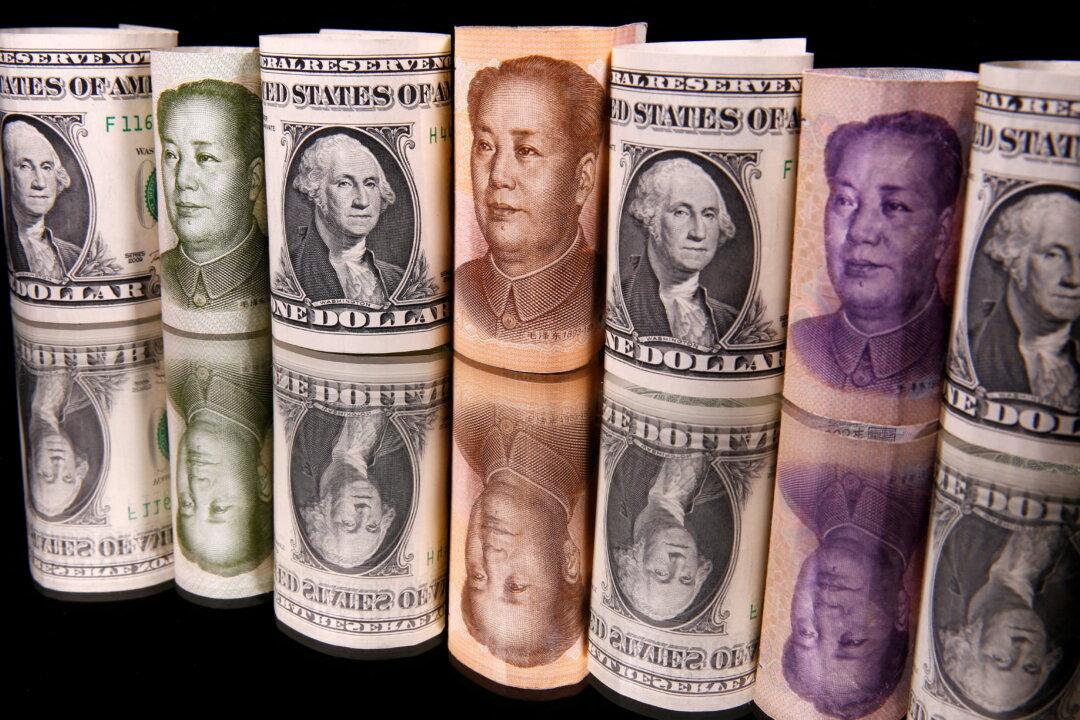LONDON—The euro and sterling slipped to a one-month low versus the safe-haven U.S. dollar on Friday with investors worrying about further economic slowdown after Federal Reserve officials reiterated the need for higher rates.
The dollar index rose 0.2 percent to 107.69, after earlier touching 107.74, its highest since July 18. The gauge is on track for a 1.9 percent rally this week, which would be its best weekly performance in ten weeks.





